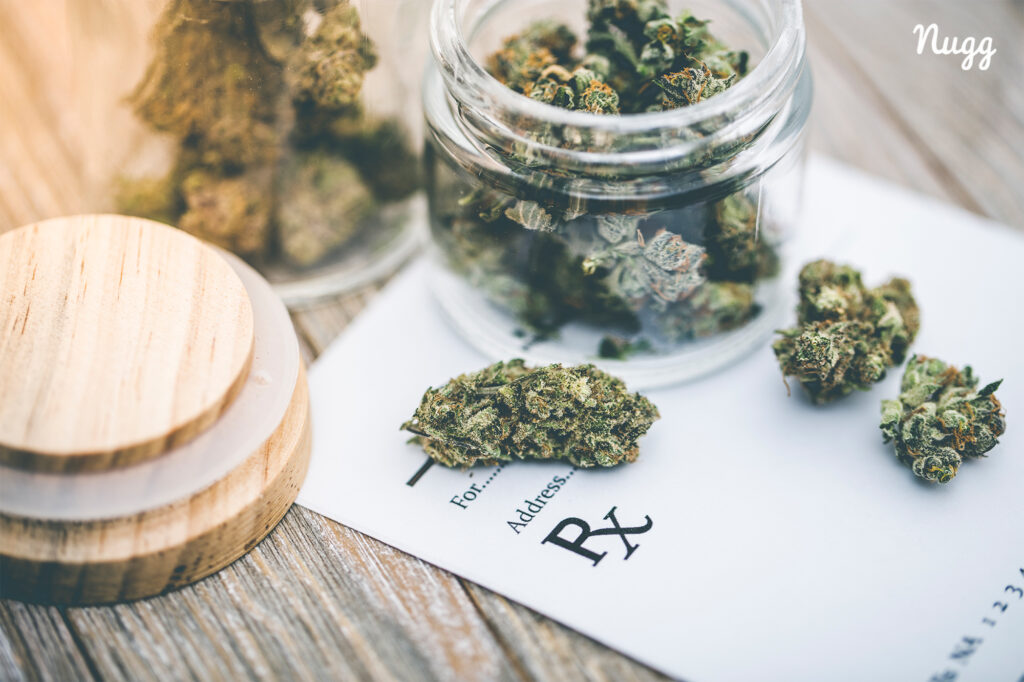
Lupus is an auto-immune disease where no two patients have the same set of
symptoms. With this condition, the immune system attacks its healthy tissues and organs and can cause damaging inflammation throughout the body.
The word lupus, Latin for ‘wolf,’ was first associated with a medical condition in the 13th century when a physician compared the shape of abnormal sores to a wolf’s bite. By 1904, doctors had discovered a systemic form of lupus affecting different organs and systems of the body. Four kinds of lupus exist, but Systemic lupus erythematosus (SLE) is the most common. Other forms are Cutaneous lupus, Drug-induced lupus, and Neonatal lupus.
Since the 1900s, there have been significant scientific developments regarding lupus, but the disease is difficult to diagnose. According to the CDC, 204,000 people have systemic lupus in the US.
The first targeted therapy for adults with SLE was approved by the FDA in 2011, and in 2020, the same treatment was approved for SLE involving kidney issues, one of its worst forms. A second therapy for systemic lupus in adults was approved in 2021. The first commercial blood test for lupus became available the same year, allowing doctors to provide more customized treatment.
Despite these advances, there is still more to learn about lupus; many have sought alternative treatments like cannabis.
What Causes Lupus?
The cause of lupus is unknown, but scientists and researchers have determined a few risk factors that may increase the possibility of development:
- Racial or ethnic background: African American, Asian American, Hispanic/Latino, Native American, or Pacific Islander descent are most at risk.
- Hormones: Lupus may be more prevalent in women due to hormones like Estrogen.
- Environment: Excessive sunlight, medications, past infections, or a history of smoking may be a risk factor.
- Genetics: Family members of those with lupus are at higher risk for development.
- Medications: Drug-induced lupus is the only type caused by certain antibiotics, blood pressure, and anti-seizure medications, and it usually disappears when the medication is stopped.
Lupus has no cure; it is a lifelong, non-contagious disease often characterized by symptoms that appear in varying intensities called flare-ups and remission. It is most often diagnosed between the ages of 15 and 44 and is ten times more common among females, although it can occur in anyone.
Lupus Signs & Symptoms
Lupus has been known to affect the following organs:
- Skin
- Kidneys (up to 50% of patients)
- Blood
- Joints
- Heart & Lungs
- Brain & Central Nervous System (rarer than others)
If you have Lupus, you may be experiencing one or more of the following symptoms:
- Joint Pain or Inflammation
- Muscle Pain
- Fever
- Rashes (most often a butterfly-shaped rash on the face)
- Chest pain with deep breathing
- Raynaud’s Syndrome
- Hair loss
- Photosensitivity
- Hands, feet, or eye swelling
- Fatigue
- Sores in mouth
These symptoms are common among men and women with lupus, but they can change over time and may disappear and come back. If you believe you may have lupus, make sure to talk to your doctor.
Can Cannabis Help Alleviate Symptoms of Lupus?

Treatment for lupus involves a team of doctors, a customized plan, and keeping up a
healthy lifestyle. Prescription medications are also available for symptoms (though some can have serious side effects).
This has left many patients wondering if cannabis has a place in lupus treatment.
Currently, no medical treatments involving cannabis and lupus are approved, but further research is underway. And early studies have suggested some potential for cannabis to help alleviate common lupus symptoms.
Numerous studies have asserted that the endocannabinoid system and cannabinoids like CBD may have potential benefits for inflammation, autoimmune activity, and liver injury.1,2 Still, more expansive studies are required to determine adverse effects and medication interactions.
Chronic pain is one of the most reported symptoms among people with lupus, and arthritis and joint pain occur among 95% of patients.3 In 2018, a Yale rheumatologist began a clinical trial to explore the use of synthetic CBD to lower pain and inflammation in lupus patients. In the study, completed in 2022, participants were given JBT-101 over 84 days, with dosages being either 10mg, 20mg, or 40mg per day for each group. The results demonstrated that the synthetic cannabinoid was safe and effective for treating pain in individuals with lupus.4
A 2020 study shows promise for a 1:1 cannabis-derived sublingual spray but concludes that more research is needed on using cannabis-based medicine for pain relating to rheumatic diseases like lupus.5
Research has also shown that major anxiety and depression affect 37% and 25% of systemic lupus patients, respectively. Whether this is due to the disease or only a correlation is yet to be proven, but pain and depression are suggested to be strongly related.6 Current research shows that cannabis may be a viable option for helping relieve specific symptoms of depression.7 At the same time, some CBD-rich products likely have potential benefits for anxiety, but this depends on dosage and method of consumption.8
Although medical cannabis for lupus has not been definitively proven effective, some of the common symptoms of lupus are qualifying conditions for a medical marijuana card in states like California (for any appropriate condition per a physician), Illinois (for pain and arthritis), and other states that list chronic pain as a qualifying condition.
Because smoking is a risk factor for developing lupus and can limit the positive effects of treatment, it can be inferred that smoking medical cannabis for lupus is not a viable option for treating its debilitating effects. It is also unknown whether cannabis use may make symptoms worse or interact with any of the drugs already used in treatment. This is why it is vital to consult with your doctor before beginning any type of lupus treatment using cannabis or its derivatives.
Legality and Doctor’s Recommendation
To determine if your state considers Lupus to be a qualifying condition for medical marijuana, check out our Laws & Regulations section for the medical cannabis rules for your state.
If you find that your state recognizes Lupus or its symptoms as a qualifying medical condition, you can seek a doctor’s recommendation to get your medical cannabis card in your state.
How NuggMD Can Help

NuggMD is the nation's leading medical marijuana technology platform, serving patients in over half the United States. We’ve connected over 1,300,000 patients with their new medical marijuana doctors face-to-face via our state-of-the-art telemedicine platform.
We believe that every human being has the right to explore the benefits of medical cannabis and are fully committed to helping each patient explore all of their options in their journey to wellness. For further information on whether you qualify for medical cannabis, select your state.
Resources
- Henshaw FR, Dewsbury LS, Lim CK, Steiner GZ. The Effects of Cannabinoids on Pro- and Anti-Inflammatory Cytokines: A Systematic Review of In Vivo Studies. Cannabis Cannabinoid Res. 2021;6(3):177-195. doi:10.1089/can.2020.0105 ↩︎
- Rodríguez Mesa XM, Moreno Vergara AF, Contreras Bolaños LA, Guevara Moriones N, Mejía Piñeros AL, Santander González SP. Therapeutic Prospects of Cannabinoids in the Immunomodulation of Prevalent Autoimmune Diseases. Cannabis Cannabinoid Res. 2021;6(3):196-210. doi:10.1089/can.2020.0183 ↩︎
- Cojocaru M, Cojocaru IM, Silosi I, Vrabie CD. Manifestations of systemic lupus erythematosus. Maedica (Bucur). 2011;6(4):330-336. ↩︎
- Mackay M, Zurier R, Kamen D, Koumpouras F, Askanase A, Kalunian K, Schulz S, Franchin G, Olsen N, Coca A, Caricchio R, McMahon M, Dall'Era M, Saxena A, Clowse M, Ballou S, Ding L, Welch B, Springer J, Shaw A, Keyes-Elstein L, Steinmiller K, Mickey A, Aranow C, Diamond B. A Phase 2, Double-blind, Randomized, Placebo-Controlled Multicenter Study to Evaluate Efficacy, Safety, and Tolerability of JBT-101/Lenabasum in Systemic Lupus Erythematosus, an Autoimmunity Centers of Excellence Study (ALE09) [abstract]. Arthritis Rheumatol. 2022; 74 (suppl 9). ↩︎
- Argueta DA, Ventura CM, Kiven S, Sagi V, Gupta K. A Balanced Approach for Cannabidiol Use in Chronic Pain. Front Pharmacol. 2020;11:561. Published 2020 Apr 30. doi:10.3389/fphar.2020.00561 ↩︎
- Figueiredo-Braga M, Cornaby C, Cortez A, et al. Depression and anxiety in systemic lupus erythematosus: The crosstalk between immunological, clinical, and psychosocial factors. Medicine (Baltimore). 2018;97(28):e11376. doi:10.1097/MD.0000000000011376 ↩︎
- Feingold D, Weinstein A. Cannabis and Depression. Cannabinoids and Neuropsychiatric Disorders. 2020;1264:67-80. doi:https://doi.org/10.1007/978-3-030-57369-0_5 ↩︎
- Peng J, Fan M, An C, Ni F, Huang W, Luo J. A narrative review of molecular mechanism and therapeutic effect of cannabidiol (CBD). Basic & Clinical Pharmacology & Toxicology. 2022;130(4):439-456. doi:https://doi.org/10.1111/bcpt.13710 ↩︎
The information in this article and any included images or charts are for educational purposes only. This information is neither a substitute for, nor does it replace, professional legal advice or medical advice, diagnosis, or treatment. If you have any concerns or questions about laws, regulations, or your health, you should always consult with an attorney, physician or other licensed professional.

